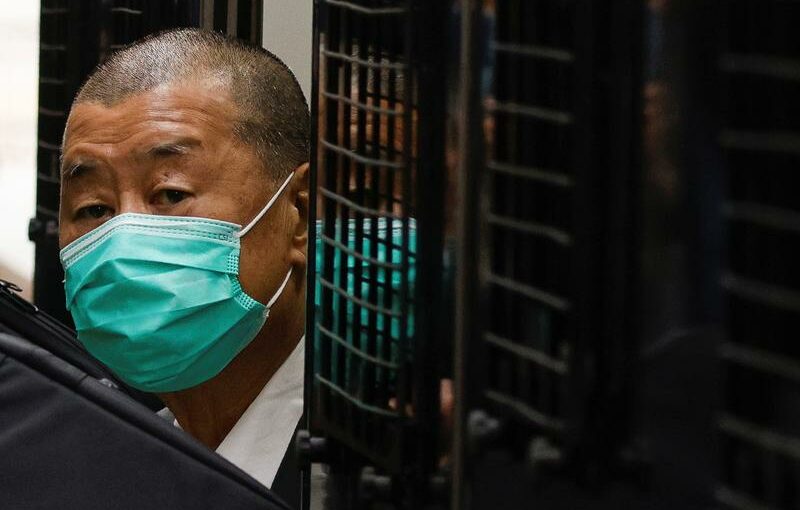HONG KONG (Reuters) – Hong Kong’s top court denied bail on Tuesday to media tycoon and Beijing critic Jimmy Lai, the most high-profile person to be charged under the city’s national security law.
Lai had been in custody since Dec. 3, except for when he was released on bail for about a week late last year. He was granted a HK$10 million ($1.3 million) bail by a lower court on Dec. 23 only for the Court of Final Appeal (CFA) to bring him back into custody on Dec. 31 for another hearing.
His return to custody was related to Article 42 of the security law, which says that “no bail shall be granted to a criminal suspect or defendant unless the judge has sufficient grounds for believing that the criminal suspect or defendant will not continue to commit acts endangering national security”.
On Tuesday, the CFA said the lower court applied an “erroneous line of reasoning” and “misconstrued” Article 42. The decision was unanimous.
Lai was arrested in August when about 200 police officers raided the newsroom of his Apple Daily tabloid newspaper.
Beijing imposed the sweeping national security law on the former British colony in June 2020 after months of pro-democracy protests. The law punishes anything China considers subversion, secession, terrorism or collusion with foreign forces with up to life in prison.
Critics say it is aimed at crushing dissent and it erodes freedoms in the semi-autonomous, Chinese-ruled city. Its supporters say it restores stability after months of unrest.
Prosecutors have accused Lai of breaching the law over statements he made on July 30 and Aug. 18, in which they allege he requested foreign interference in Hong Kong’s affairs.
Under the new law, the onus is on the defendant to prove they would not be a national security threat if released on bail. Under Hong Kong’s common law-based legal system, the onus has traditionally been on the prosecution to prove its case.
The tycoon has been a frequent visitor to Washington, meeting with officials, including former Secretary of State Mike Pompeo, to rally support for Hong Kong democracy, prompting Beijing to label him a “traitor”.
Lai stepped down last year as chairman of Next Digital, which publishes Apple Daily, a popular tabloid newspaper known for its feisty and critical coverage of China and Hong Kong.
Source: Read Full Article
